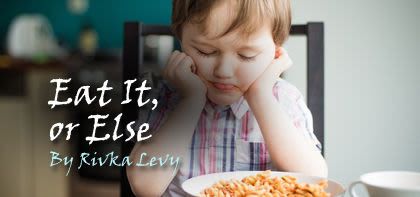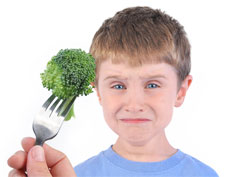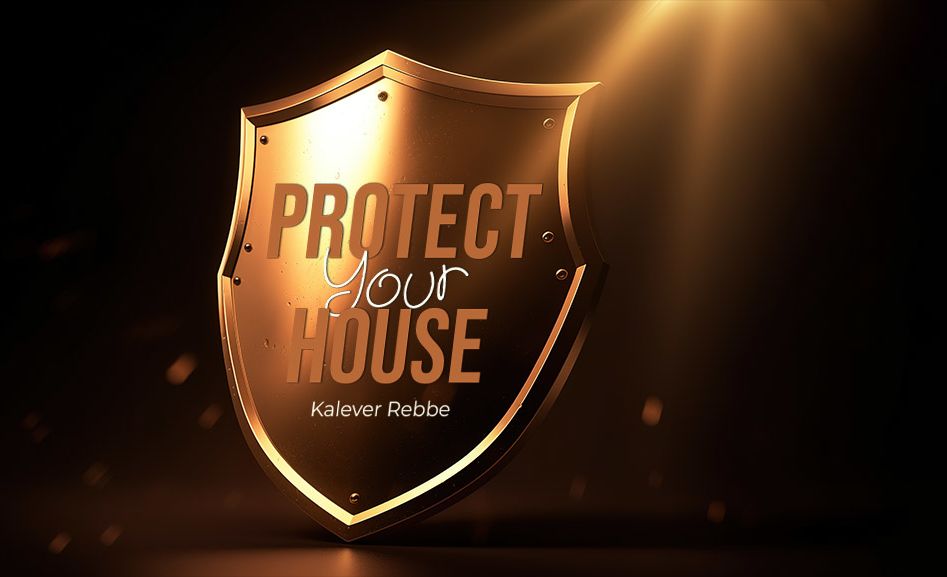
Eat It, or Else
Why do parents force their children to eat things that the child finds disgusting? It's possible to grow up healthy without brussel sprouts and fried liver...

When I was little, I was forced to eat a whole bunch of horrible things. Sometimes, they were over-boiled brussel sprouts, that had gone cold from being sat on my plate for an hour while I tried everything I could to get out of actually having to put them in my mouth. (It never worked; once, my brussel sprouts experience plunged to new depths, when the plate was put in the fridge and then brought out for my breakfast the next day. Double and triple bluchhhh.)
Another time, we were at a good friend of my parents’ who served up the most disgusting cake I’d ever tasted in my life. I made big eyes at my mother, silently imploring her to let me off having to finish the massive slice on my plate, that was literally choking me to death with every bite.
I got the imperious glare, and I knew exactly what it meant: finish the cake, or face the terrible wrath of mom a  little later on. With tears in my eyes and a heavy heart, I choked that monstrously dry, tasteless Victoria sponge down, like a person on death row.
little later on. With tears in my eyes and a heavy heart, I choked that monstrously dry, tasteless Victoria sponge down, like a person on death row.
To this day, I can’t stand brussel sprouts, or Victoria sponge. And who can blame me? I was not a fussy eater as a child; I was happy to eat almost anything that was served up to me, with the notable exceptions of brussel sprouts, pilchards and fried liver. I just couldn’t stand the taste and/or the texture, or the skin, or the bones, or SOMETHING, and even going near those foods was a complete ordeal for me.
So then the question is, why did the adults in my life continue to make those things so often, and why did they force me to eat them? Why, when I didn’t choke down the three brussel sprouts in record time, was I forced to hear about all the starving people in Africa, or India, who ‘would love to eat the food you are turning up your nose at?’
(For the record, you’d have to have been starving a seriously long time to wolf down a grey, over-boiled, poisonous brussel sprout that had been sitting in the fridge overnight, and even then, there’s no guarantee you’d go for it.)
For years and years, I was under the mistaken notion that this ‘forcing children to eat food they hate’ thing was good education. To my own enduring shame, I’ve also made my children eat ‘healthy’ things that they absolutely couldn’t stand, on the grounds that, a) they were being too fussy; b) it was something good for them; or c) that’s what I fancied for supper, and I couldn’t be bothered making anything else.
But recently, I’ve realized just how bad that it is, even though it’s one of the traditions that was apparently handed down from Mount Sinai. Why’s it so bad? Because it completely wrecks the child’s free will.
Children are not ‘bad’; if they don’t like how something tastes, or how something looks, or its texture, that’s a preference that was built in to them by G-d. If we repeatedly force them to do things against their own very deeply-felt wishes, we are doing some serious damage to their sense of self-confidence; to their sense of themselves as unique, sensitive individuals; and not least, to their ability to trust their own intuition and decision-making processes. Of course, they may be wrong. They may be making a lot of mistakes. But that’s also a crucial part of the Divinely-created learning and growing process called ‘being alive’.
Like everything, it’s a very narrow-bridge. On the one hand, we want to encourage them to eat things like vegetables, and not just to gorge on the candies; but on the other, we also need to preserve their free choice and connection to what they really think and feel about things.
It’s so easy for parents to dress up an egotistical power-play as ‘good education’. It’s so easy for us to tell huge fibs to ourselves that we’re making the kid eat pilchards (again, for the fifth time this month) because it’s full of healthy omega 3, and not just because we want to impose our will on them and make them squirm.
But if we really want the kid to get the omega 3, we will work with them to find an alternative option that they actually like, or at least, can tolerate. And we will also give them the space they need to tell us what they really think, without closing them down, over-riding them, or guilting them into doing what we want.
* * *
After I wrote this article, I went to apologize to one of my kids. “Kid,” I told her, “I’m sorry I’ve been making you choke down three spoonfuls of (very healthy!) vegetable soup all these years. You hate eating it, don’t you?” She nodded, mournfully. “I’m sorry I did that to you. From now on, I’ll make you Israeli salad and omelette when we have soup.” She nodded again, smiled a big smile, and ran off.
With G-d’s help, I’m going to get there. I’m going to disassemble the warped, twisted ‘parenting paradigm’ I got stuck with, one crazy idea at a time.
* * *
Check out Rivka Levy’s new book The Happy Workshop based on the teachings of Rabbi Shalom Arush.











8/24/2020
I identify with your experiences of eating everything on my plate. It was an iron-clad rule.
Nonetheless, as an adult, I look back at very different lessons learned:
1. I learned to appreciate what was given to me, even if it wasn't to my liking. We had food! This lesson went a long way in helping me to accept what Hashem dishes out…
2. I learned to appreciate my parents – what they both went through to put food on our plates. Both of my parents grew up dirt poor. You don't ever, ever waste food just because you don't like it.
3. I learned NO COMPLAINING!! My father had zero tolerance for complaints. He used to say "Stop complaining or you'll get DOUBLE." I am reminded of his saying this whenever I hear Harav Arush's message of complaining and whining to Hashem (you'll get even more din on your head).
4. I learned to do things I didn't like or wanted to do. This is a powerful lesson for me across life. In many instances, this lesson set me apart from my peers who wouldn't complete tasks (or even start them) because they didn't like it. This discipline helps me tremendously in following halachot.
10/06/2013
cute. true. fickle!!! like you said, it's a very narrow bridge. One thing I don't compromise on is "What I cooked is what's for dinner". I'm not a short order cook, and the kitchen isn't a diner. So to that end I've sadly given up on my healthy gourmet creations that they never liked (that I enjoyed creating but not serving, in the end) and cook what I know the kids like, and if they don't want it: they can grab themselves a pile of rice crackers and a piece of fruit or cheese or bowl of cereal – for now. Hoping…..
10/06/2013
like you said, it's a very narrow bridge. One thing I don't compromise on is "What I cooked is what's for dinner". I'm not a short order cook, and the kitchen isn't a diner. So to that end I've sadly given up on my healthy gourmet creations that they never liked (that I enjoyed creating but not serving, in the end) and cook what I know the kids like, and if they don't want it: they can grab themselves a pile of rice crackers and a piece of fruit or cheese or bowl of cereal – for now. Hoping…..